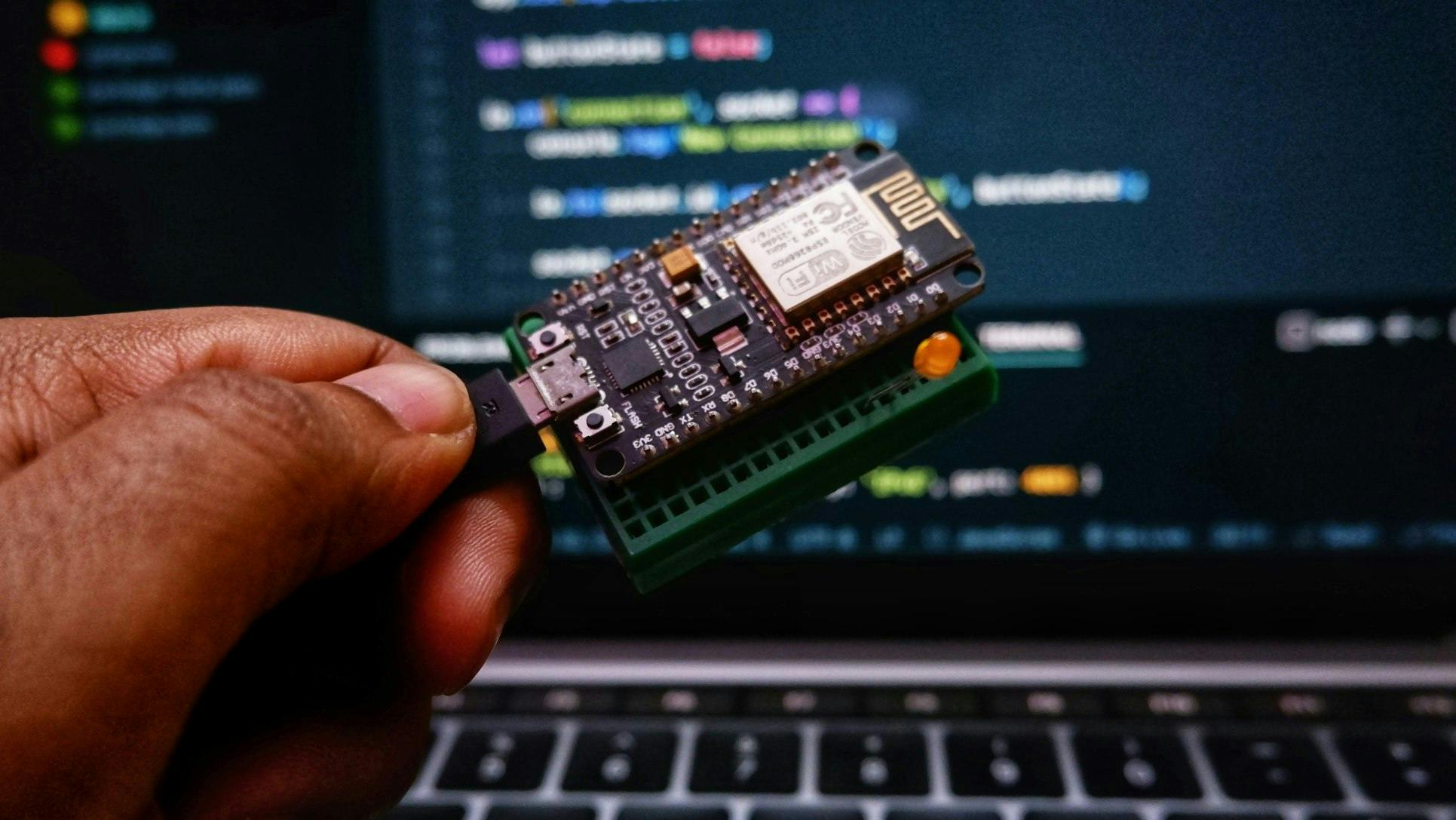
# Introduction to NodeMCU
NodeMCU is an open-source firmware and development board that combines the power of the ESP8266 Wi-Fi chip with the scripting capabilities of the Lua programming language. Designed for Internet of Things (IoT) applications, NodeMCU provides a flexible and user-friendly platform for creating connected devices and projects.
## What is NodeMCU?
NodeMCU consists of two main components:
1. **NodeMCU Firmware**: This is the open-source firmware that runs on the ESP8266 Wi-Fi chip. It includes a Lua scripting environment, allowing you to write and execute Lua scripts directly on the board.
2. **NodeMCU Development Board**: This is a physical board that integrates the ESP8266 chip with various components, such as a USB-serial converter, voltage regulator, and pins for connecting external devices and sensors.
The combination of the NodeMCU firmware and development board provides a complete solution for building IoT projects, enabling developers to easily program and connect their devices to the internet.
## Features of NodeMCU
Here are some key features that make NodeMCU an attractive choice for IoT projects:
1. **Wi-Fi Connectivity**: The ESP8266 chip provides built-in Wi-Fi capabilities, allowing NodeMCU to connect to wireless networks and communicate with other devices or cloud services.
2. **Lua Scripting**: NodeMCU uses the Lua scripting language, which is lightweight and easy to learn, making it accessible for both beginners and experienced developers.
3. **GPIO Support**: The NodeMCU development board includes multiple GPIO (General Purpose Input/Output) pins, allowing you to connect and interact with various sensors, actuators, and other electronic components.
4. **Low Power Consumption**: The ESP8266 chip is designed for low power consumption, making NodeMCU suitable for battery-powered IoT applications.
5. **Open-Source and Community Support**: Being an open-source project, NodeMCU benefits from a vibrant community of developers contributing libraries, tools, and resources.
## Getting Started with NodeMCU
To get started with NodeMCU, you'll need the following:
- A NodeMCU development board (e.g., NodeMCU v3, LOLIN, or similar)
- A micro-USB cable for programming and power
- The Arduino IDE (Integrated Development Environment) or a dedicated NodeMCU IDE
- Additional components and sensors (depending on your project requirements)
Once you have the necessary components, follow these steps:
1. Install the Arduino IDE or a dedicated NodeMCU IDE on your computer.
2. Add the required board support package for NodeMCU to your IDE.
3. Connect the NodeMCU board to your computer via the micro-USB cable.
4. Write your Lua code or use pre-existing libraries and examples.
5. Upload the code to the NodeMCU board using your IDE.
Here's a simple example of a NodeMCU script that blinks an LED:
```lua
-- Define the LED pin
led = 2
-- Configure the LED pin as an output
gpio.mode(led, gpio.OUTPUT)
-- Blink the LED indefinitely
function blink()
gpio.write(led, gpio.HIGH)
tmr.delay(500000) -- Delay for 500 milliseconds
gpio.write(led, gpio.LOW)
tmr.delay(500000) -- Delay for 500 milliseconds
end
-- Call the blink function repeatedly
tmr.alarm(0, 1000, tmr.ALARM_AUTO, blink)
```
## Applications of NodeMCU
NodeMCU's versatility and low-cost make it suitable for a wide range of IoT projects and applications, including:
- Home automation and smart home systems
- Environmental monitoring and sensing projects
- Industrial automation and control systems
- Wearable devices and fitness trackers
- Remote control and monitoring applications
- Educational projects and workshops
With its extensive community support and vast collection of libraries and examples, NodeMCU empowers developers and makers to bring their IoT ideas to life quickly and efficiently.
## Learning Resources
If you're new to NodeMCU or want to deepen your knowledge, here are some helpful learning resources:
- **Official NodeMCU documentation:**
- **Books and online courses on NodeMCU and IoT programming**
- YouTube channels and online tutorials dedicated to NodeMCU projects
Whether you're a hobbyist, developer, or educator, NodeMCU offers an accessible and powerful platform for exploring the exciting world of IoT and connected devices.
.jpg&w=128&q=75)